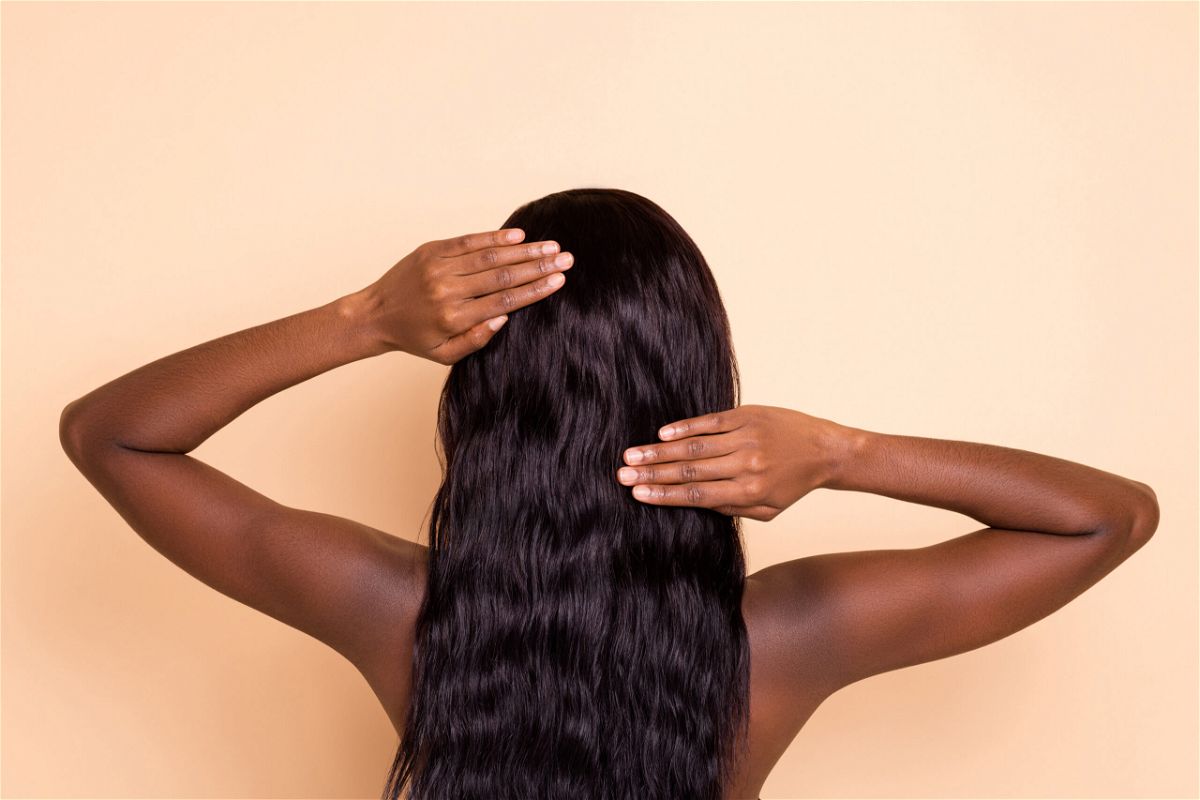Hair-straightening chemical products linked to increased uterine cancer risk in new study

By Jacqueline Howard, CNN
Scientists are uncovering new details in the connection between using certain hair straightening products, such as chemical relaxers and pressing products, and an increased risk of cancer in women.
Ongoing research previously suggested that hair straightening chemicals are associated with an increased risk of certain hormone-related cancers, including breast and ovarian cancers, and now, a new study links use of hair straightening products with an increased risk of uterine cancer. Black women may be more affected due to higher use of the products, the researchers noted.
The study, published Monday in the Journal of the National Cancer Institute, estimates that among women who did not use hair-straightening chemical products in the past 12 months, 1.6% developed uterine cancer by age 70, but about 4% of the women who frequently use such hair-straightening products developed uterine cancer by age 70.
That finding “also communicates that uterine cancer is indeed rare. However, the doubling of risk does lead to some concern,” said Chandra Jackson, an author of the study and researcher at the National Institute of Environmental Health Sciences.
“In this study, women with frequent use in the past year had an over two-fold higher risk of uterine cancer,” she said. Frequent use was defined as more than four times in the previous year.
Cancer risk was most pronounced in Black women
The new study includes data on nearly 34,000 women in the United States, ages 35 to 74, who completed questionnaires about their use of certain hair products, including perms, dyes, relaxers and straighteners. The researchers, from the National Institutes of Health, also tracked the incidence of cancer diagnoses within the study group.
The researchers found a strong association between hair straightening products and uterine cancer cases but the use of other hair products — such as dyes and perms or body waves — was not associated with uterine cancer.
The study data also showed that the association between hair straightening products and uterine cancer cases was most pronounced for Black women, who made up only 7.4% of the study participants, but 59.9% of those who reported ever using straighteners.
Several factors likely play a role in the frequent use of hair straightening products: Eurocentric standards of beauty, social pressures placed on Black and Latina women in workplace settings related to microaggressions and the threat of discrimination, along with desired versatility in changing hairstyles and self-expression.
“The bottom line is that the exposure burden appears higher among Black women,” Jackson said.
“Based off of the body of the literature in this area, we know that hair products marketed directly to Black children and women have been shown to contain multiple chemicals associated with disrupting hormones, and these products marketed to Black women have also been shown to have harsher chemical formulations,” she said. “On top of that, we know that Black women tend to use multiple products simultaneously, which could contribute to Black women on average having higher concentrations of these hormone-disrupting chemicals in their system.”
The researchers did not collect information on brands or ingredients in the hair products the women used, but they wrote in the paper that several chemicals identified in straighteners could contribute to the increased incidence of uterine cancer observed in their study.
“To our knowledge this is the first epidemiologic study that examined the relationship between straightener use and uterine cancer,” Alexandra White, head of the National Institute of Environmental Health Sciences Environment and Cancer Epidemiology group and lead author on the study, said in a news release Monday.
“More research is needed to confirm these findings in different populations, to determine if hair products contribute to health disparities in uterine cancer, and to identify the specific chemicals that may be increasing the risk of cancers in women.”
‘A new and growing area of research’
Some substances found in hair-straightening products, especially those most used by and marketed to Black and Latina women, are hormone-disrupting chemicals, said Tamarra James-Todd, an epidemiologist at Harvard T.H. Chan School of Public Health, who was not involved in the new study but separately has led some of the earliest research finding links between hair products and cancer.
“They modify our body’s normal hormonal processes. So, it makes sense to look at cancers that are hormonally mediated,” she said, adding that hormone-disrupting chemicals could impact other parts of the body too.
“The challenge is that the impact of these chemicals might not be limited to hormonal processes, but they could also impact other systems, including our immune and vascular systems. Understanding how these chemicals work beyond the hormonal system is still a new and growing area of research,” James-Todd told CNN.
“So, it could be that the way these chemicals are operating is through altering not only hormonal responses, but also by altering immune or even vascular responses,” she said. “All of these processes are linked to cancer.”
While the new study is “well done” and shows an association between hair-straightening chemical products and increased uterine cancer risk, it is unable to determine that the products directly cause the cancer, Dr. Otis Brawley, professor at the Johns Hopkins University Bloomberg School of Public Health and former chief medical officer of the American Cancer Society, said in an email to CNN.
“It is unable to show cause, it could be pure association,” said Brawley, who was not involved in the new study.
Yet “the question how do we settle this is difficult. The scientific ideal is a randomized trial of 40,000 or so; 20,000 with regular hair straightener use and 20,000 never using it and never having used it and follow them for 20 years,” he said, adding that at this point, “it’s impossible for science to answer better than” the recent study.
The-CNN-Wire
™ & © 2022 Cable News Network, Inc., a Warner Bros. Discovery Company. All rights reserved.